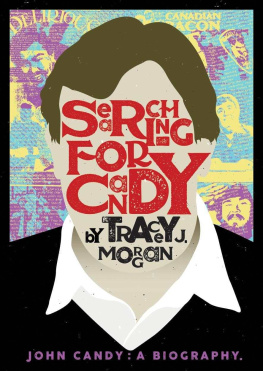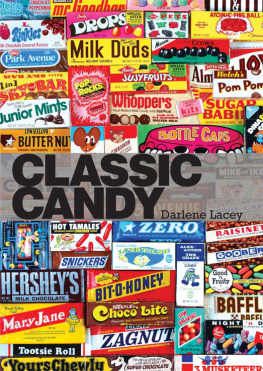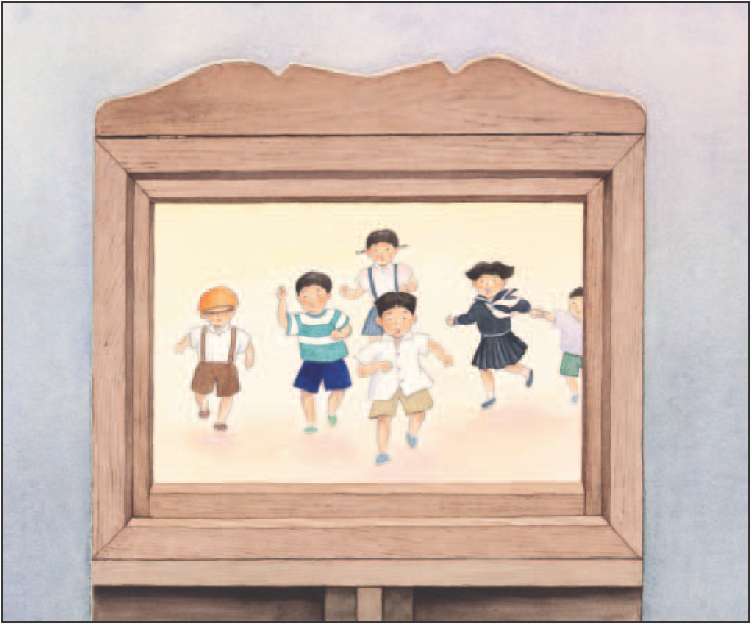
written and illustrated by
ALLEN SAY
Houghton Mifflin Company Boston 2005
Walter Lorraine Books
For Margaret Eisenstadt, Donna Tamaki, and Tara McGowan
Walter Lorraine Books
Copyright 2005 by Allen Say
All rights reserved. For information about permission
to reproduce selections from this book, write to Permissions,
Houghton Mifflin Company, 215 Park Avenue South,
New York, New York 10003.
www.houghtonmifflinbooks.com
Library of Congress Cataloging-in-Publication Data
Say, Allen.
Kamishibai man / Allen Say.
p. cm.
"Walter Lorraine books."
Summary: After many years of retirement, an old Kamishibai mana Japanese street performer
who tells stories and sells candiesdecides to make his rounds once more even though such
entertainment declined after the advent of television.
ISBN-13: 978-0-618-47954-2
ISBN-10: 0-618-47954-6
[1. KamishibaiFiction. 2. Street theaterFiction. 3. StorytellingFiction.4. JapanFiction.]
I. Title.
PZ7.S2744Kam 2005
[Fic]dc22
2005006319
Printed in the United States of America
WOZ 10 9 8 7 6 5 4 3 2 1
FOREWORD
When I think of my childhood in Japan, I think of kamishibai. It means "paper theater." Every afternoon, the kamishibai man came on a bicycle that had a big wooden box mounted on the back seat. The box had drawers full of candies and a stage at the top. We bought candies and listened to the man's stories.
As he told the stories, the kamishibai man would slide out the picture cards in the stage one by one and put them in the back, like shuffling a deck of cards. The stories were actually one never-ending tale, with each installment ending with the hero or heroine hanging from a cliff or getting pushed off it.
"To be continued," the kamishibai man would say with a grin, and we children would groan, but not too much. Tomorrow the hero and heroine would be saved for new adventures, and we would have our candies.
Yes, they were cliffhangers. So when I came to America, that was one expression that nobody had to explain to me. Today, any sort of cliffhanger reminds me of the happy memories that kamishibai had given me. And with this book, though it has no high cliffs, let me be your "paper theater man" for a day. You'll have to get your own sweets.
Allen Say
Not so long ago in Japan, in a small house on a hillside, there lived an old man and his wife. Even though they never had children of their own, they called each other "Jiichan" and "Baachan." Jiichan is Grandpa, and Baachan is Grandma.
One day, Baachan said, "Jiichan, you haven't said a word in three days."
"Umm, I've been thinking how much I miss going on my rounds," he said.
Baachan stared. "How many years has it been?" she asked.
"Umm, yes, quite a while ... but my legs are good. And I've kept the bicycle in good order."
"...I don't know. But one day won't hurt, I suppose. Should I make some candies?"
"That would be very nice," Jiichan said.
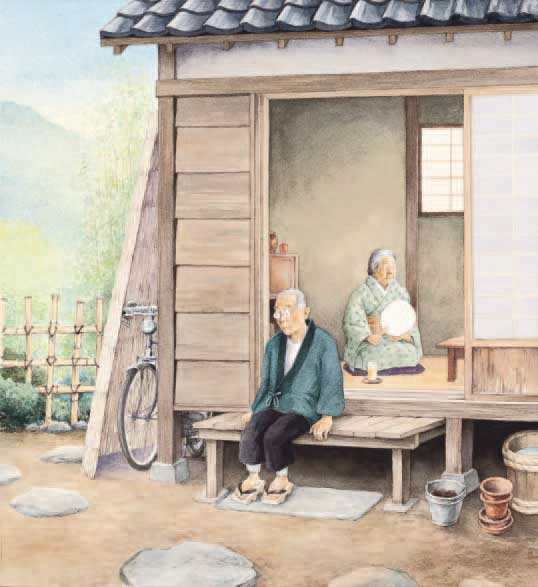
The next day, Jiichan rode his bicycle down the hillside in the first light of morning.
"Umm, how many years has it been?" he asked himself. "And do I remember such a fine morning? All so fresh and young ... Well, good morning to you, rickety old bridge, still going strong after all these years, um, mmm." He began to hum a tune that his mother used to sing when he was a small boy.
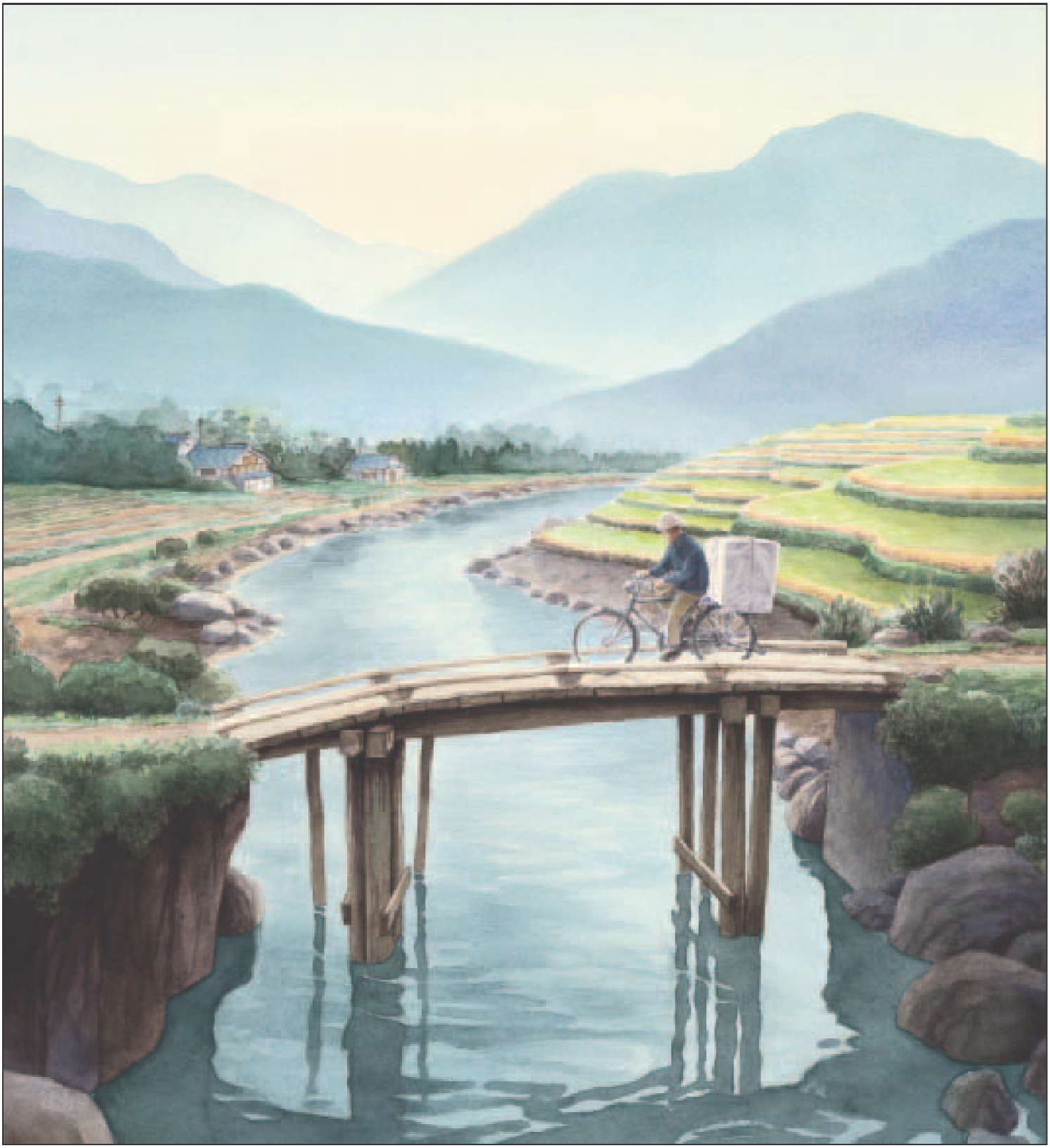
When he came to the city, he stopped humming.
"This isn't right," he said. "I must have taken a wrong turn ... but there's that old house I used to go by every afternoon..."
A car horn blasted at him, then another.
"Why are there so many cars all of a sudden? Look at these tall buildings! You'd think I was in another country!"
A truck blasted its horn behind him.
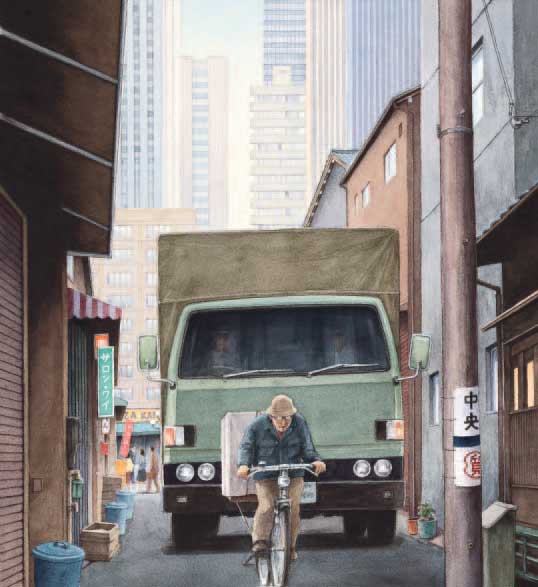
He pulled into a vacant lot and panted. "Can't a man ride his bicycle in peace? Don't remember such rude drivers." Catching his breath, he looked across the street and gaped.
"Can this be? There's that old noodle shop ... used to be the only building here ... that and a nice park all around. Now look at all these shops and restaurants. They chopped down all those beautiful trees for them. Who needs to buy so many things and eat so many different foods?"
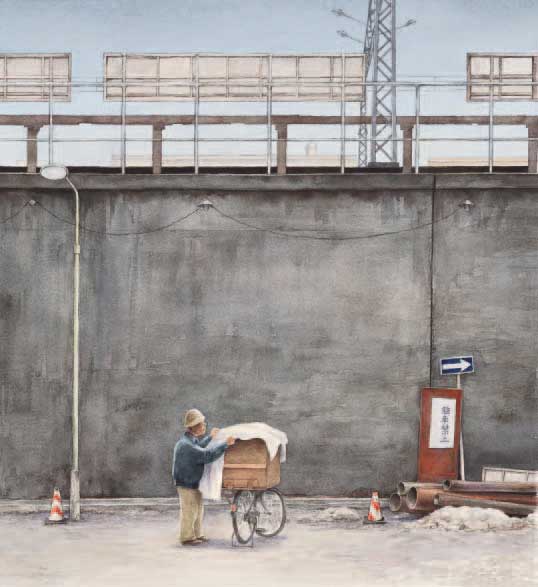
Shaking his head, he slowly took the canvas off the box on his bicycle. He propped up the stage and checked the story cards inside, patting each painting. Then he opened the bottom drawer in the box.
"Umm, you little jewels," he said, and started to hum again. "Thank you, Baachanyou make good candies, just like in the old days."
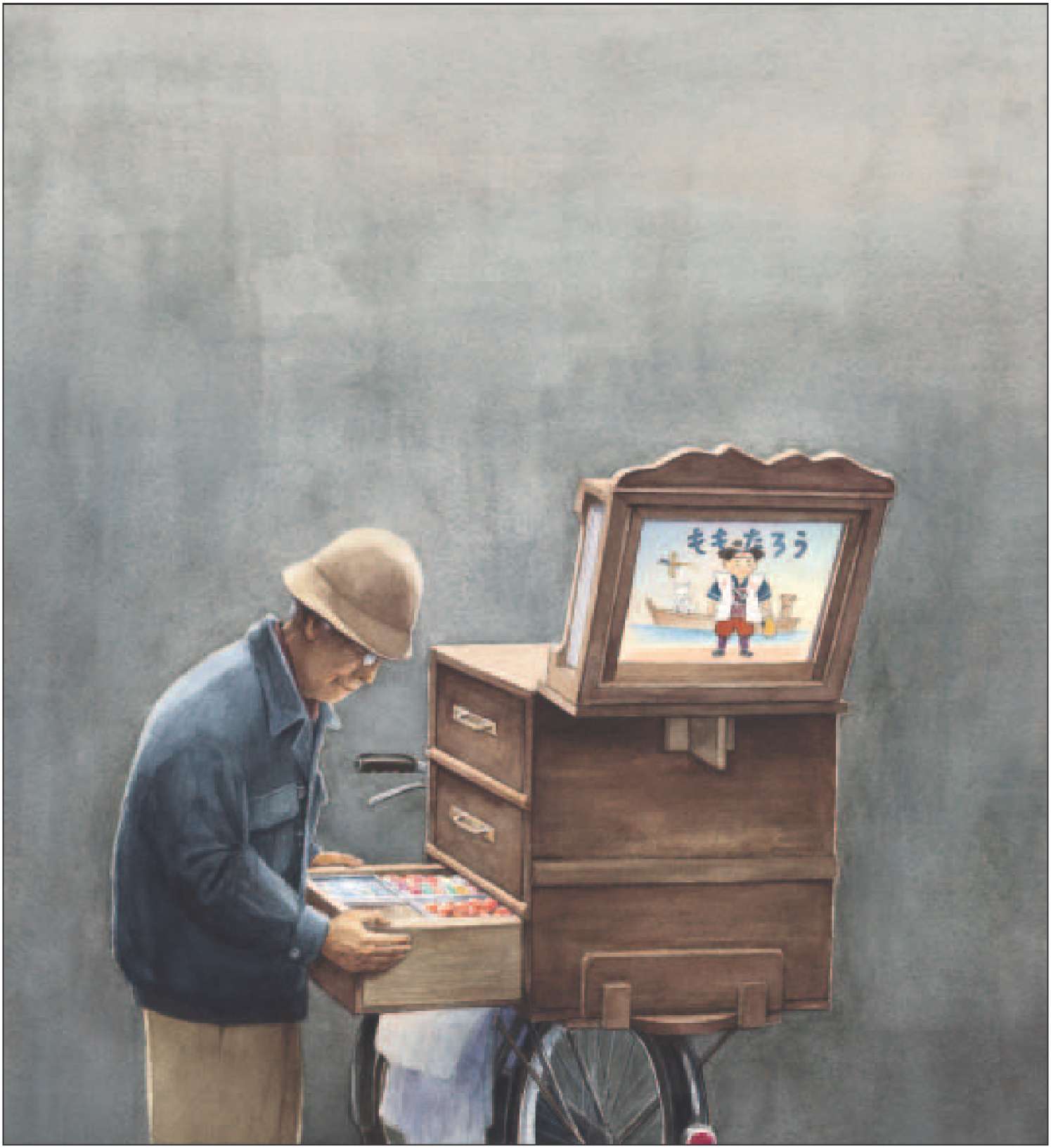
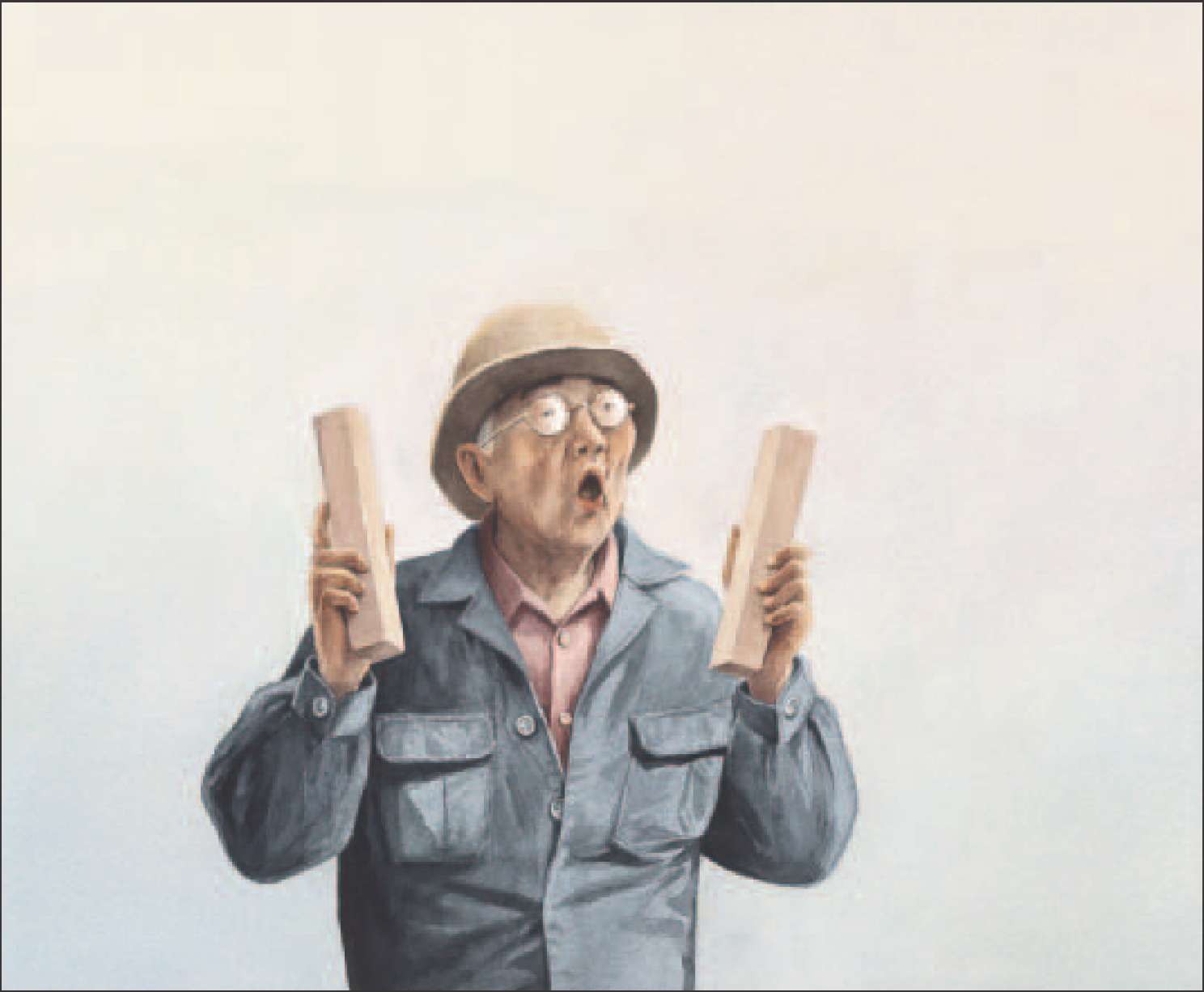
From the top drawer he took out two wooden blocks, and holding one in each hand he hit them together. A sharp, loud clack rang out.
"Come gather around me, little ones, your kamishibai man is here again!"
Clack, clack!
"Come get your sweets and listen to my stories!"
Clack, clack, clack!
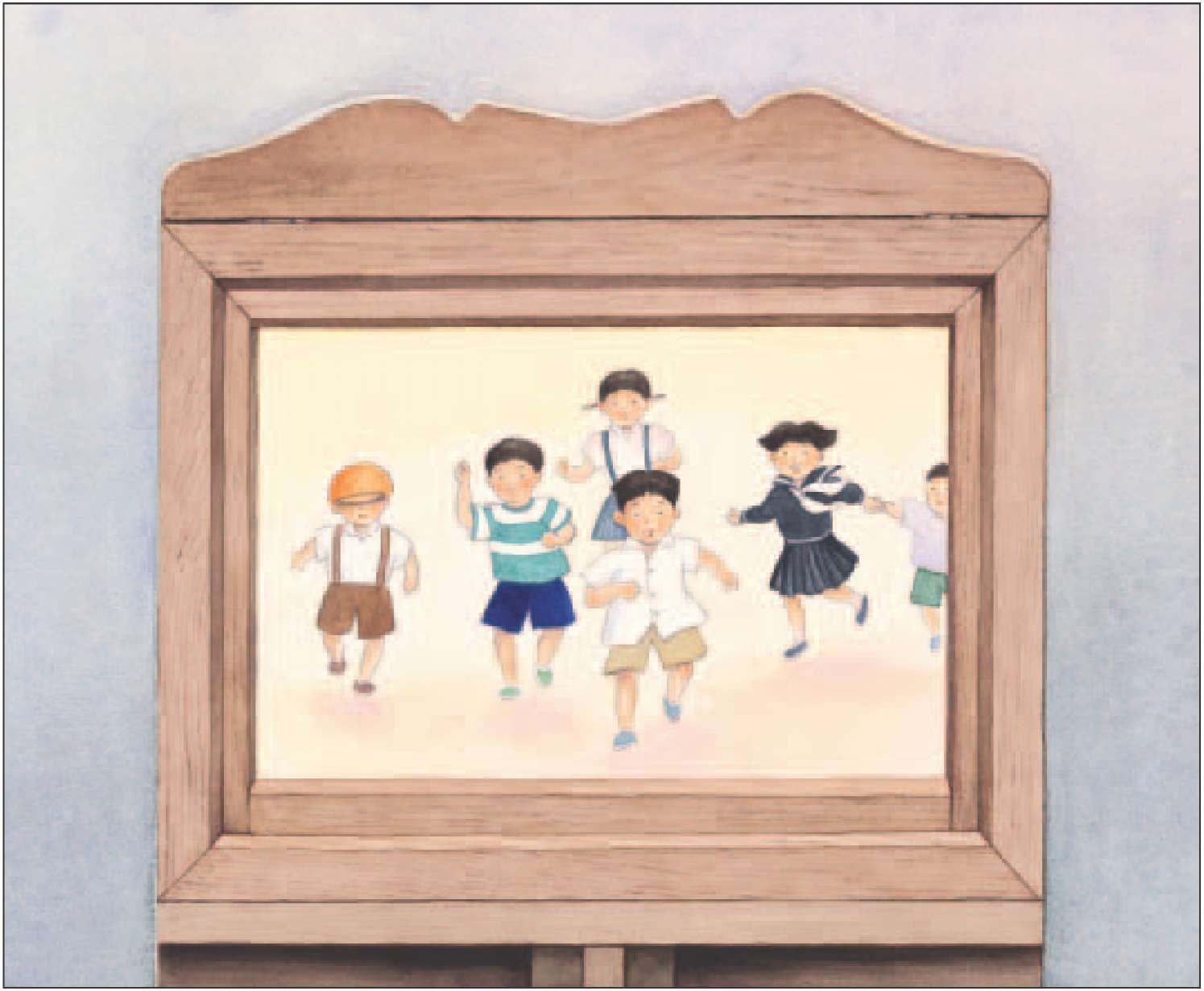
"Ah, yes, I can see you now, all your bright faces, clasping coins in your little hands, so happy to hear my clappers, so happy to see your kamishibai man!
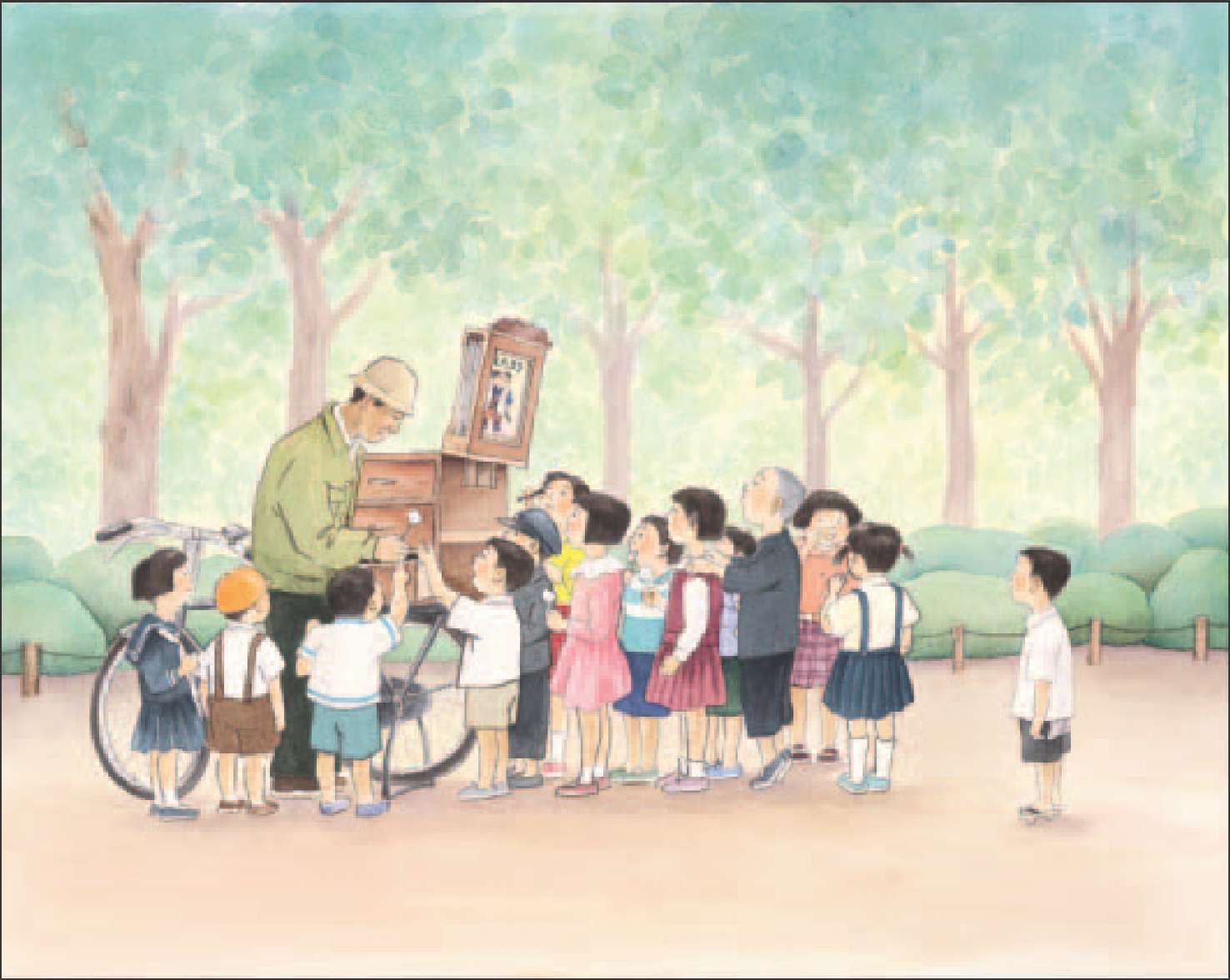
"Patience, everyone! You'll get your sweets, each and every one of you; I have all your favoritesred ones and green ones and the soft ones on sticks. And here comes that boy, the one who never has any money ... umm, I'll get to him later.
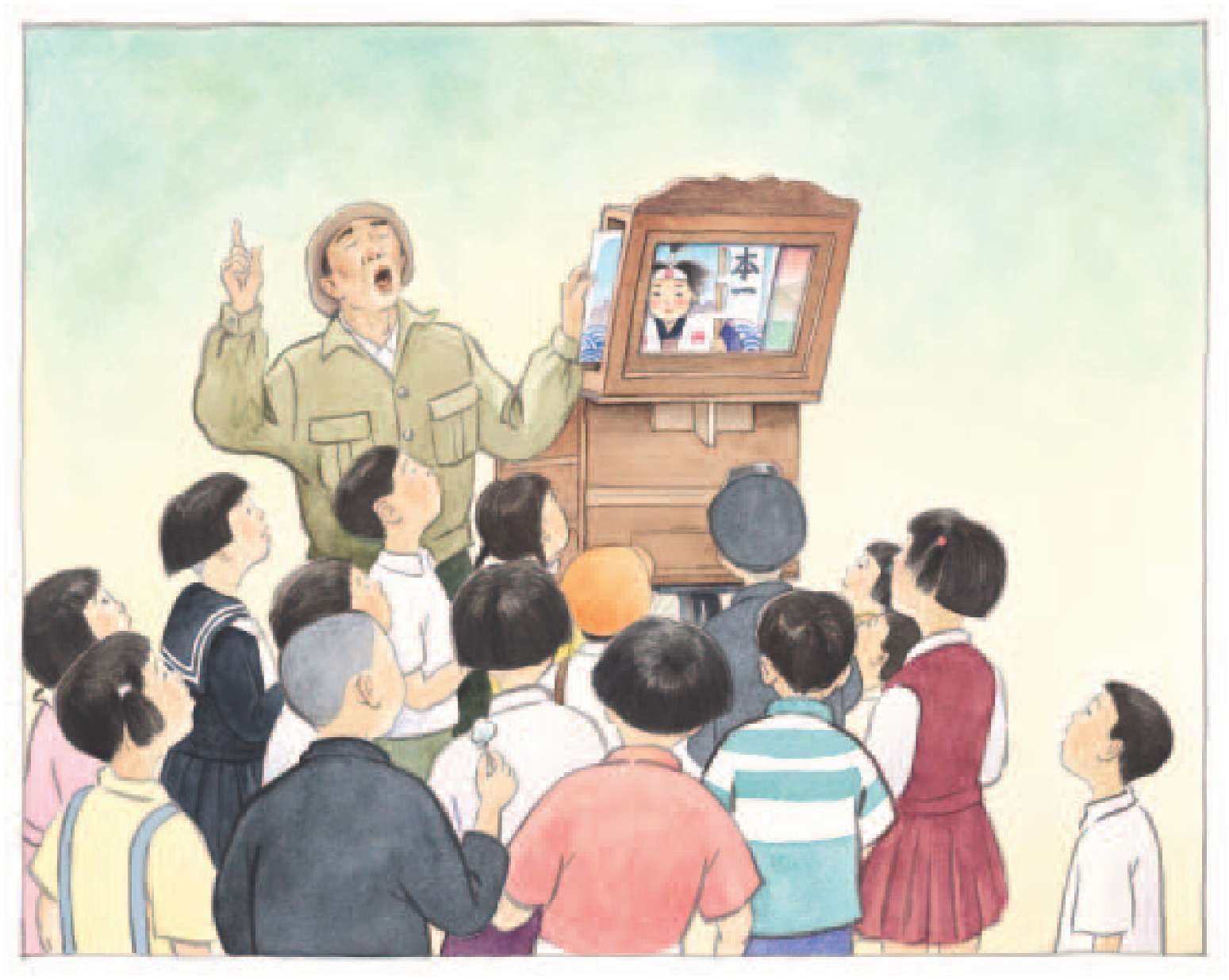
"So, which story will it be today? The mighty 'Peach Boy'! Born from a giant peach! But wait, let's start at the beginning, umm ... Long, long ago, there once lived an old man and his wife who had no children...
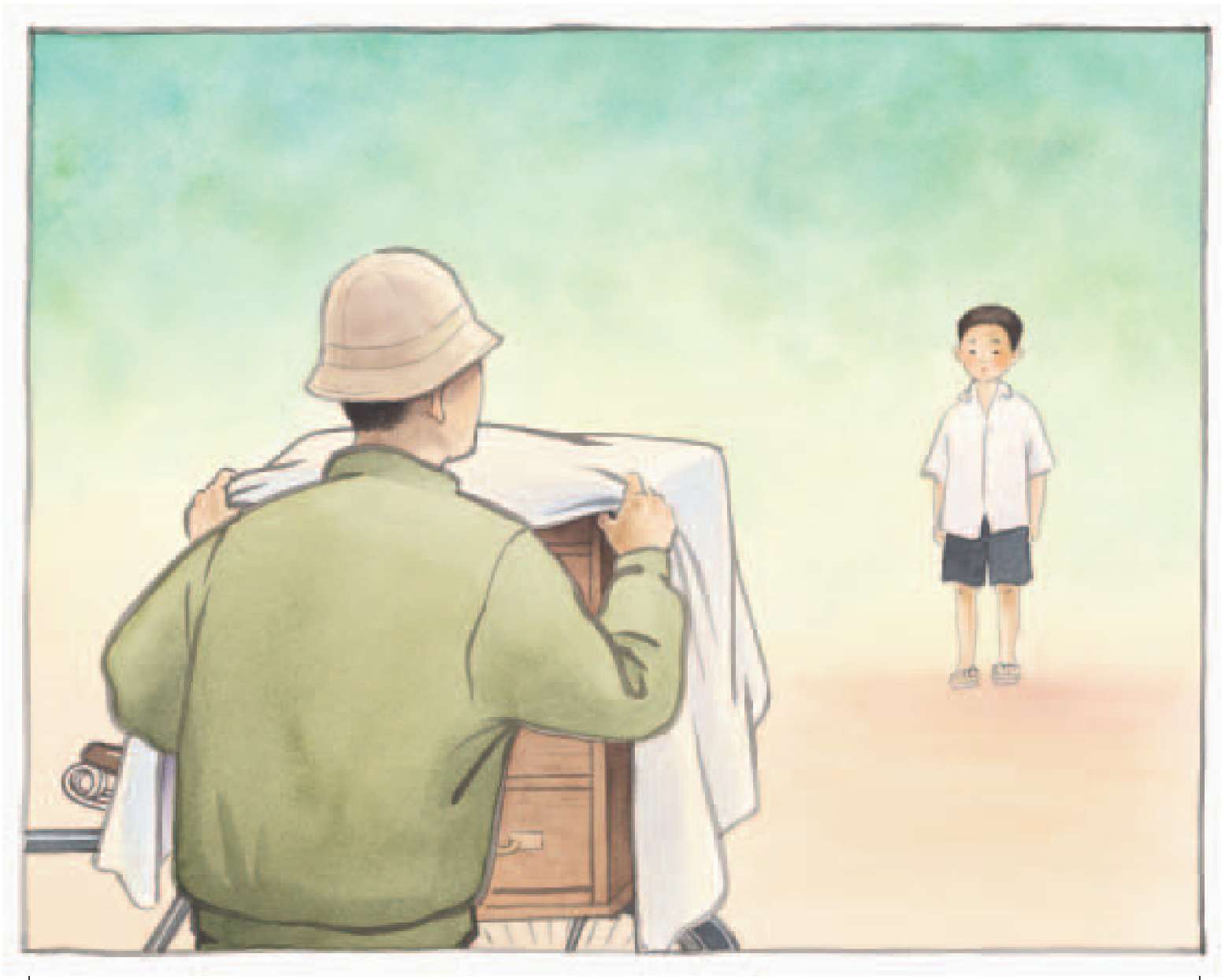
"After 'The Peach Boy,' 'The Bamboo Princess' was a nice change, a gentle story. Then my favorite, 'The Old Man Who Made Cherry Trees Bloom.' And when I was finished, you all went home happy, except for that poor boy. 'Would you like a candy?' I asked once. He said, 'I don't like candies!' and ran away.
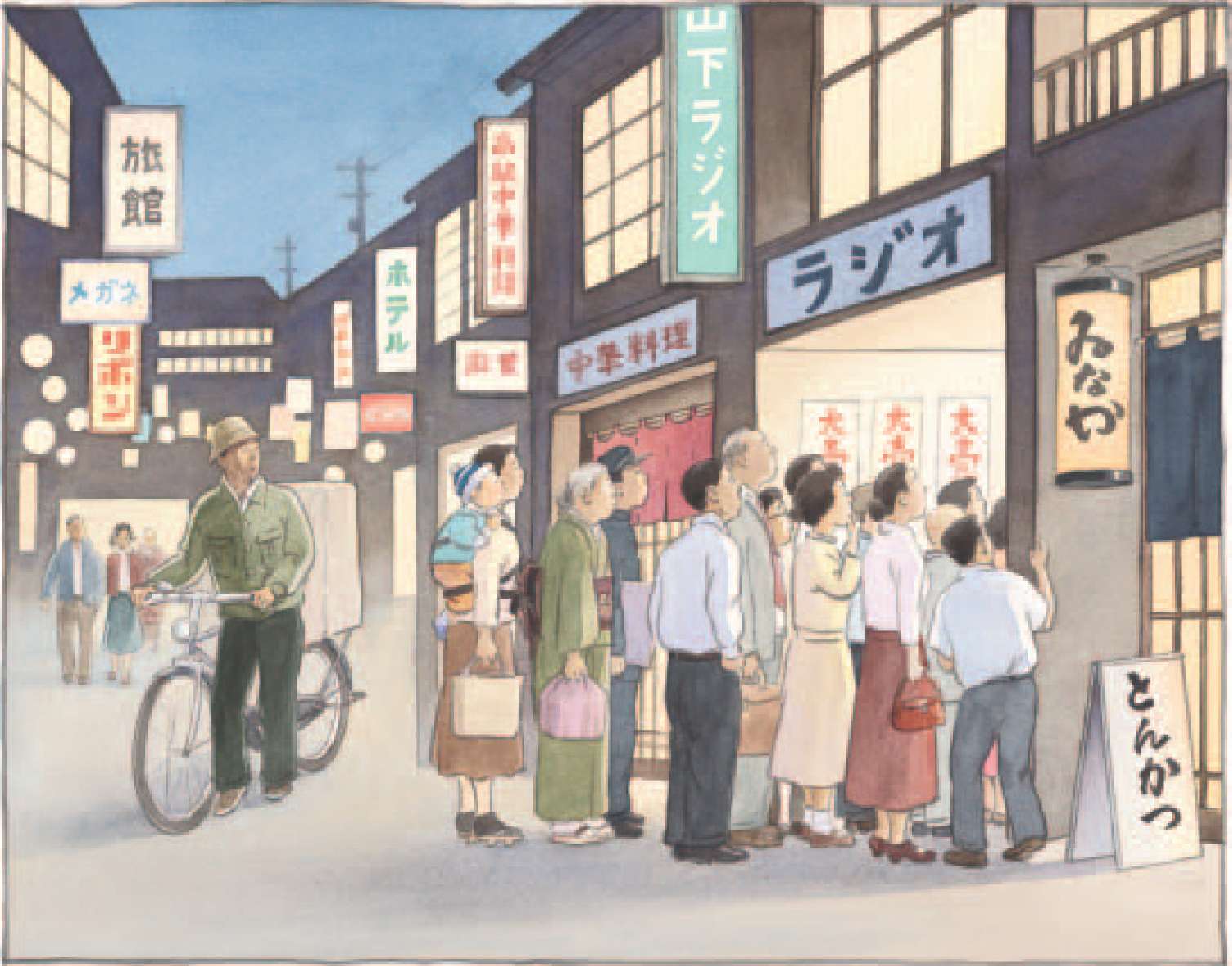
Next page





